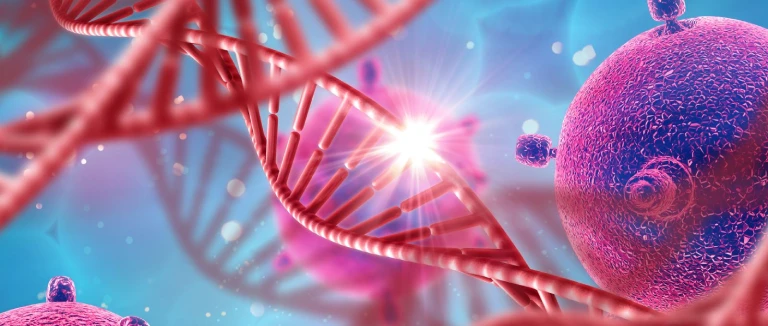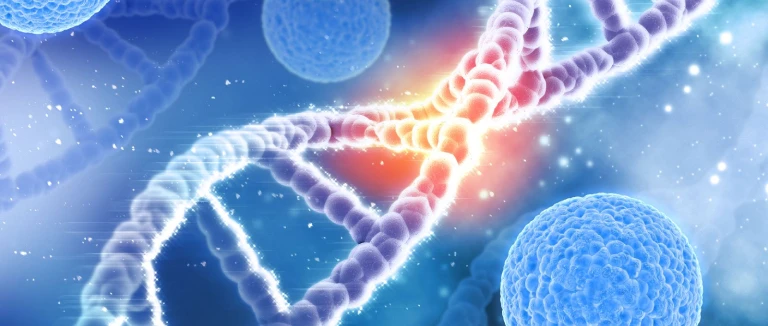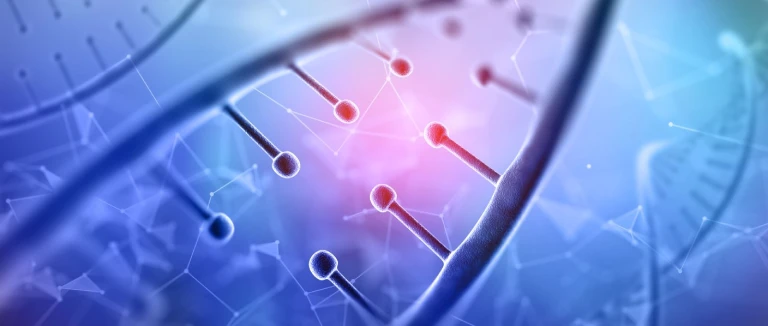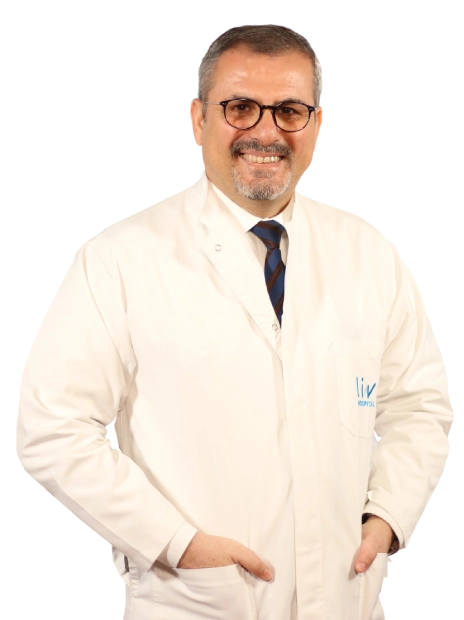Stem Cell In Turkey
Stem cell care therapy has been a savior for patients looking for a medical procedure for permanently treating various illnesses and injuries. Turkey is quickly becoming a hotspot for stem cell therapy thanks to its top-notch medical facilities, cutting-edge research facilities, and highly skilled medical staff. Stem cell therapy is opening up new pathways for healing and rehabilitation, from treating chronic illnesses to rebuilding damaged tissue, and Turkey is at the forefront of this exciting science.
This blog is essential reading for anybody interested in the future of stem cell therapy, and to understand regardless of whether you're a patient looking for treatment or a medical practitioner hoping to remain current on the most recent advancements. It provides a comprehensive study of the most recent developments, the best facilities and doctors, and Turkey's current state of stem cell therapy.

What Is The Stem Cell Treatment?
In Turkey, stem cells offer new hope for the repair of degenerative, injured, or diseased organs through transplant-based procedures. Often called regenerative medicine, this approach uses stem cells or their derivatives to restore function to damaged tissue. These undifferentiated cells are unique in that they can both self-renew and give rise to differentiated progeny cells with specialized functions. Instead of waiting for difficult-to-obtain organ donations, scientists are increasingly cultivating stem cells in the lab. As a result, transplantation medicine is steadily moving toward broader use of stem cell advancements.

How Is Stem Cell Care Treatment Performed?
Treatment plans using stem cells vary based on the condition being addressed. For instance, bone marrow transplantation is a widely used method, especially in the management of certain cancers like leukemia.
- Initially, the patient is determined if they are a good candidate for the stem cell treatment:
Several important considerations help decide if a patient is an appropriate candidate for stem cell therapy in Istanbul, including:
- The current well-being and medical history of the patient
- The stage of the disease or cancer and its type
- The possibility of curing the disease with a transplant
- Availability of patient's stem cells or an eligible donor.
For this therapy, viable stem cells are introduced into the patient's system, either to replenish cells destroyed by illness or chemotherapy, or to reinforce the donor's immune defenses in controlling blood-related cancers. These cells can be derived from a compatible donor or harvested from the patient's own healthy tissue. Another approach, stem cell care IV therapy, utilizes regenerative medicine to target damaged cells, reduce inflammation, and regulate the body's immune responses.
This approach has potential benefits for a range of health issues, including neurological, inflammatory, and autoimmune diseases. Still, while stem cell therapy shows promise across multiple disorders, ongoing research is essential to fully evaluate both its risks and rewards.

Stem Cell Autism Treatment
Currently, there are no universally accepted protocols for applying stem cell therapy in the context of autism. As a result, treatment standards and methods may vary considerably from one clinic to another.
However, the treatment often includes the following phases:
- Pre-treatment evaluations: Patients are assessed for eligibility through tests like bloodwork, a review of their health history, and other exams.
- Collection: Stem cells are collected by multiple methods”including from bone marrow, umbilical cords, or donor placenta. They can also be directly extracted from a patient's fat, spinal fluid, or bone marrow. The process may cause some discomfort and is often invasive.
- Cultivation: Certain types of stem cells require growth time in a laboratory, which may last several weeks after collection.
- Stem cell injection: The harvested cells are introduced into the patient's body”either via a vein or the spinal canal. This delivery can be invasive and may require anesthesia or a hospital stay. Depending on individual needs and clinic protocols, injections can occur over days, weeks, or months.
Liv Hospital Regenerative Medicine and Stem Cell Production Center
Liv Hospital Regenerative Medicine and Stem Cell Production Center provides innovative solutions to medical and aesthetic conditions by using regenerative cells obtained from the patient’s own tissues or from the umbilical cord of newborn babies. The center collaborates with all clinical branches and treats damaged or dysfunctional cells and tissues through scientifically approved cellular therapy methods. Since its establishment, Liv Hospital Regenerative Medicine and Stem Cell Center has been a pioneer in the field of cellular therapy in Turkey, continuously following global developments and offering advanced treatment approaches to patients.
Stem cells possess the remarkable ability to renew themselves and transform into specialized cells, making them valuable for therapeutic use. They can migrate to areas of inflammation, help repair damaged tissue, regulate immune responses, and reduce inflammation. These properties make stem cells essential for regenerative medicine.
Stem cells can be obtained from various tissues, but the most common sources used in treatments include bone marrow, umbilical cord, joint fluid or membrane, and adipose tissue. At Liv Hospital, stem cells are produced in laboratories from biopsy samples taken from the patient’s own tissue or from healthy donors, such as umbilical cords, under Good Manufacturing Practice (GMP) quality standards. Liv Hospital’s Stem Cell Production Center is the first facility in Turkey to produce stem cells under internationally recognized GMP conditions, ensuring global-level safety and quality within a hospital environment.
The center’s production includes fibroblasts from skin tissue, mesenchymal stem cells from umbilical cord, fat tissue, cartilage, and synovial tissue, as well as exosomes, stromal vascular fraction from fat tissue, and mononuclear cells derived from bone marrow. The Ministry of Health has approved applications of these cellular therapies in neurological, spinal cord, cardiovascular, chest, eye, muscle, and autoimmune diseases. Treatments are also available for conditions such as erectile dysfunction, ovarian failure, and various cosmetic applications, including skin rejuvenation, facial reconstruction, and hair restoration.
Liv Hospital continues to lead the field of regenerative medicine through its multidisciplinary structure, scientific integrity, and patient-centered philosophy. The center’s work contributes to improving quality of life and advancing cellular therapy practices both in Turkey and internationally.
Stem Cell In İstanbul : Liv Hospital
Liv Hospital is recognized as a premier destination for world-class healthcare in Turkey, delivering a wide range of services from advanced therapies to routine prevention. Every patient receives a complete diagnostic workup after a detailed discussion with their physician to address any concerns.
Aiming to shape the future of medical tourism in Turkey, Liv Hospital ensures comprehensive stem cell care tailored to individual needs and current pricing standards. With seven branches across the country, Liv Hospital stands for "Leading International Vision"”a name reflecting its mission. Patients benefit from cutting-edge facilities and outstanding healthcare, right in the heart of Istanbul.
* Liv Hospital Editorial Board has contributed to the publication of this content .
* Contents of this page is for informational purposes only. Please consult your doctor for diagnosis and treatment. The content of this page does not include information on medicinal health care at Liv Hospital.
For more information about our academic and training initiatives, visit Liv Hospital Academy
Frequently Asked Questions
What is regenerative medicine?
Regenerative medicine focuses on repairing or replacing damaged tissues and organs using the body’s own cells to restore normal function.
What are stem cells?
Stem cells are unique cells that can renew themselves and transform into specialized cell types such as nerve, muscle, or blood cells used in healing and tissue repair.
How are stem cells produced at Liv Hospital?
At Liv Hospital, stem cells are produced from the patient’s own tissues or from donated umbilical cords in GMP-certified laboratories under strict international standards.
What makes Liv Hospital’s Stem Cell Center unique?
Liv Hospital hosts the first hospital-based stem cell production facility in Turkey operating under Good Manufacturing Practice conditions, ensuring global-level quality and safety.
From which sources are stem cells obtained?
Stem cells can be derived from bone marrow, adipose tissue, umbilical cord, joint tissue, or other biologically rich tissues suitable for regenerative applications.
For which conditions can stem cell therapy be used?
Stem cell therapy may support treatments for neurological, spinal cord, cardiovascular, lung, muscle, autoimmune, and certain cosmetic conditions.
Is stem cell treatment safe?
All applications at Liv Hospital are performed under Ministry of Health approval, scientific supervision, and medical ethics, ensuring safety and compliance.
Can stem cells help in cosmetic procedures?
Yes, regenerative cells can assist in skin rejuvenation, facial tissue repair, and hair restoration by promoting natural regeneration and cellular renewal.
How long does stem cell production take?
The production process may vary depending on the cell type, but it typically involves laboratory cultivation and quality control lasting several days to weeks.
Why choose Liv Hospital for stem cell therapy?
Liv Hospital combines advanced laboratory facilities, experienced specialists, and internationally approved standards to provide reliable regenerative treatments.
